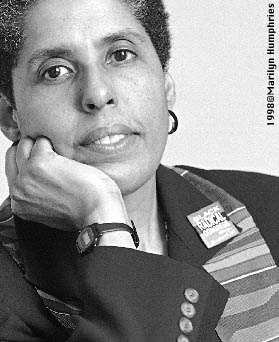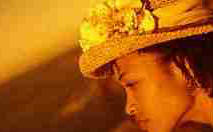



























 
|
Passing The Torch
What is Activism?
The Oxford English Dictionary defines
'Activism' as "a doctrine or policy of advocating energetic
action", and an 'Activist' as "an advocate of activism". The
Random House Dictionary furthers the definition of 'Activism',
defining it as an "involvement as a means of achieving political
or other goals, sometimes by demonstrations, protests, etc.".
Thus one can see Activism as an attempt to change. This could be
the changing of a government's laws or a public's attitude. It
could be the attempt to change a countries method of disposing
of waste, or the attempt to change a public's acceptance of
homosexuals. With many people in the world starving, and others
being killed in wars between nations and cultures, the world is
generally considered to be an unfair place. It is natural,
therefore, for people to try and change it to what they would
consider to be a better place. The people who try and make this
change are activists. There have been activists and activism for
as long as there has been society. There is activism from the
left side of the political spectrum, and activism from the
right. There are activists demanding tighter gun laws, and there
are activists demanding the right for any individual to carry a
firearm. Every issue in today's society spawns activists of
opposing views. (http://homepages.ihug.co.nz/~bwmm/defn.htm)
Much can be learned at the feet of an
activist; those who
have walked the walk and talked the talk. The following
are men and women, straight and gay who have been in the trenches of activism, have
suffered the wounds and who have enjoyed the libations of
success. They are presented here for you to hear their
words and be inspired. You may consider yourself one
person, but one person can inspire many people, or many nations.
|
Gay & Lesbian Activism
|
|

|
Barbara Smith
Legendary radical Black lesbian feminist Barbara Smith talks
"The Truth That Never Hurts", as she discusses her book of
the same title. Making connections between women/queer
liberation and the African American Civil Rights movement of
the 1950s and 60s, Smith traces her development as an
activist, and celebrates the idealism, solidarity and
passions of younger activists who keep the struggle going.
[View Video]
|
|
Cheryl Clarke
Poetess Cheryl Clarke describes how a well-defined community
of lesbians gave her the best entrée into the world of lesbian
poetry. Along the way, she pays homage to her predecessors and
contemporaries, including Phyllis Wheatley, Gwendolyn Brooks
and Audre Lorde, and reads from her collection, Experimental
Love, published in 1993.
[View Video]
|

|
|

|
Lisa Moore
-- Redbone Press
"Where were all the black lesbians?" Lisa Moore of Redbone Press
asks in her video project, "Sassy Be Gone." Through oral
histories of black lesbians in their 60s, 70s, and 80s, Moore
explores where Black bulldaggers, femmes, studs and women who
liked to wear "wife beaters" fit in the black communities of
their youth. From Chicago to Kentucky to New York City, Moore
listens to the stories of women who helped to make way for
contem-porary Black lesbian existence/ movements. She also
raises important questions about the dearth of formal
historical inquiry into the lesbian presence in famed
movements such as the Harlem Renaissance.
[Watch Video]
|
|
James
Baldwin James Baldwin: Interview
with Walter Blum of San Francisco Chronicle, 1979
In an interview conducted at the University of California,
Berkeley, James Baldwin discusses his life in the United
States and in Europe, his work and the life of Black people
in various parts of the world. Introduction by
Angela Davis.
[Audio: Listen]
|

|
|
|
|
|
The Personal As
Political
|
|

|
SONIA BRAGA
"We trust you to be famous, to talk for us...an actor is elected."
Brazilian screen legend and human rights activist, Sonia
Braga, reflects on her experiences growing up in Brazil and
how these have informed her artistry and concern for
humanity. She also discusses racism and its different
meanings at home and abroad.
[View Video]
|
HARRY BELAFONTE
"Artists are protectors of the truth. Anyone
who capitulates in that responsibility has denied their
mission."
Renowned entertainer and human rights activist, Harry
Belafonte gives a profound and inspiring account of his
career and personal growth in the context of the human
rights struggle in the 20th Century.
[View Video]
|

|
|

|
JAMAL JOSEPH
"Not only is it a program that was beautiful and relevant
at the time, it is still beautiful and relevant today."
Jamal Joseph discusses his role as a former member of the
Black Panther party. Joseph is now a successful screenwriter
and Columbia Film School professor. He also works with
inner-city youth, helping them find an artistic voice for
their anger and a constructive channel in social activism.
[View Video]
|
KATHERINE DUNHAM
"We weren't pushing Black is beautiful. We just showed
it."
At 92 years of age, Katherine Dunham is a living legend and
national treasure. In conversation with this dance pioneer
and human rights champion is social activist and former
Dunham dancer, Julie Belafonte.
[View Video]
|

|
|

|
Elaine Brown
A true legacy, Elaine Brown, in 1974,
became the first and only woman to lead the Black Panther
Party. Ms. Brown's appointment to the position of leadership
was a very drastic one for the party, which had been
previously and exclusively lead by men. In her
autobiographical memoir, "A Taste of Power: A Black Woman’s
Story", she recounts her life from the ghettos of North
Philadelphia to her leadership in one of the country’s most
important and militant civil rights groups.
[View Video]
http://www.elainebrown.info/
|
|
Maya Angelou
MAYA ANGELOU: interview with the author of
"I Know Why the Caged Bird Sings" and other works of
autobiography. Video from the Roland Collection.
[View Video]
|

|
|

|
Malcolm X
Malcolm X: Interview with
Herman Blake, Sociology Department, UC Berkeley, - Oct. 11,
1963 [Video]
Watch
it with RealPlayer: Clip 1
Watch
it with RealPlayer: Clip 2
Watch
it with RealPlayer: Clip 3
Watch
it with RealPlayer: Clip 4
Watch
it with RealPlayer: Clip 5
Watch
it with RealPlayer: Clip 6
Watch it with RealPlayer: Clip 7
|
|
Activism As Art
|
Patricia Smith
Patricia Smith's debut video plunges into the
mythically-driven panic for a cure, any cure, for
HIV before protease inhibitors. (1994, Chicago)
[View Video]
http://voices.e-poets.net/SmithP/
|

|
|
HIV/AIDS
|
|

|

Phill Wilson
AIDS Activist Phill Wilson Talks About
Fighting AIDS and Urban Myths in the African-American
Community
Originally conducted by Black Entertainment Television.
[View Video]
www.blackaids.org
|
|
Denise Stokes
Living With HIV: Denise Stokes Discusses How
She Deals With HIV as a Part of Her Life Without Being
Defined By It.
[View Video]
|

|
|

|

Balm In Gilead
BET's "Nightly News" features the
Balm in Gilead's raising HIV/AIDS awareness in Africa.
BET-TV April 2, 2002 11- 12am (2:40)
[View Video]
|
|
|
|
|
|

|
Hot
Topic:

BLACK IS... BLACK AIN'T
What is "Black," "Black Enough," and "Too
Black" in today's America?
Marlon Riggs,
one of today's most explosively influential independent
filmmakers, died of complications due to AIDS. His final film,
BLACK IS...BLACK AIN'T, may also be his most powerful. BLACK
IS...BLACK AIN'T is an up-front examination of racism, sexism,
and homophobia within the black community itself. Bringing
together personal stories, interviews, music, history, and
performance, BLACK IS...BLACK AIN'T asks African Americans: What
is black, black enough, or too black? Produced and
directed by Riggs, BLACK IS...BLACK AIN'T was completed
posthumously by his co-producer Nicole Atkinson and
co-director/editor Christiane Badgley. A presentation of the
Independent Television Service (ITVS)
with funds provided by the Corporation for Public Broadcasting,
BLACK IS...BLACK AIN'T is being distributed by
California Newsreel.
|
|

|